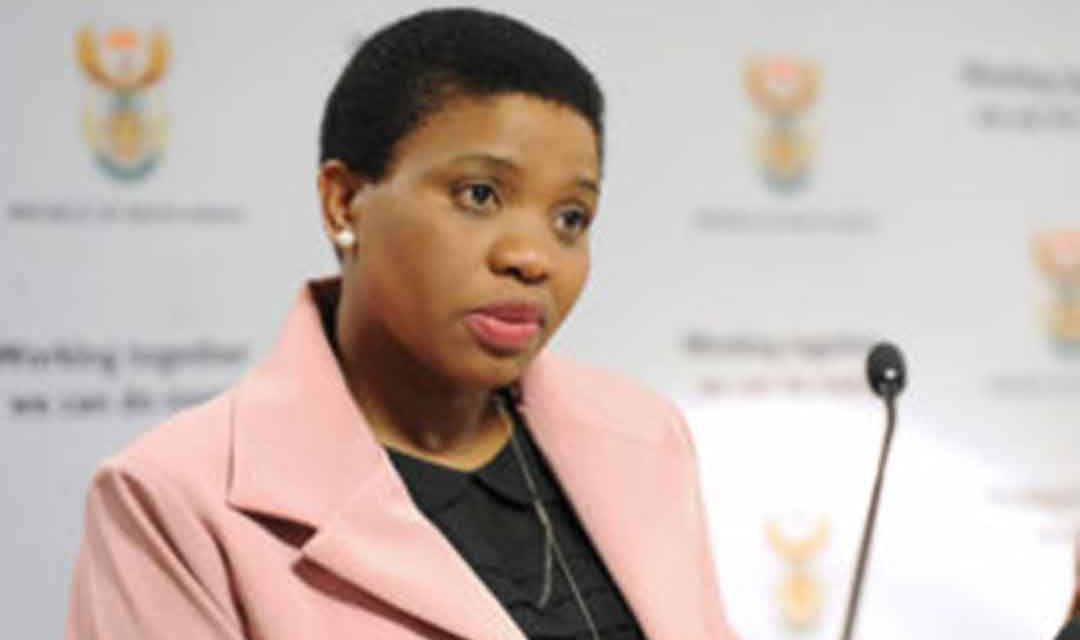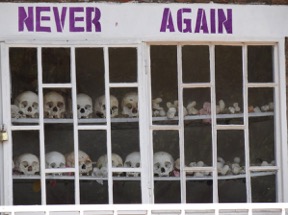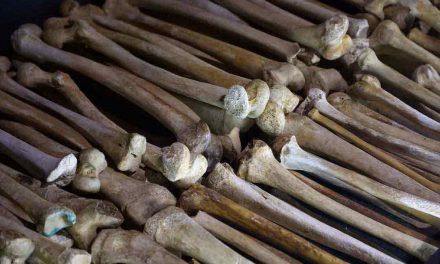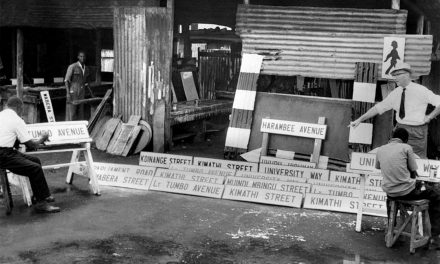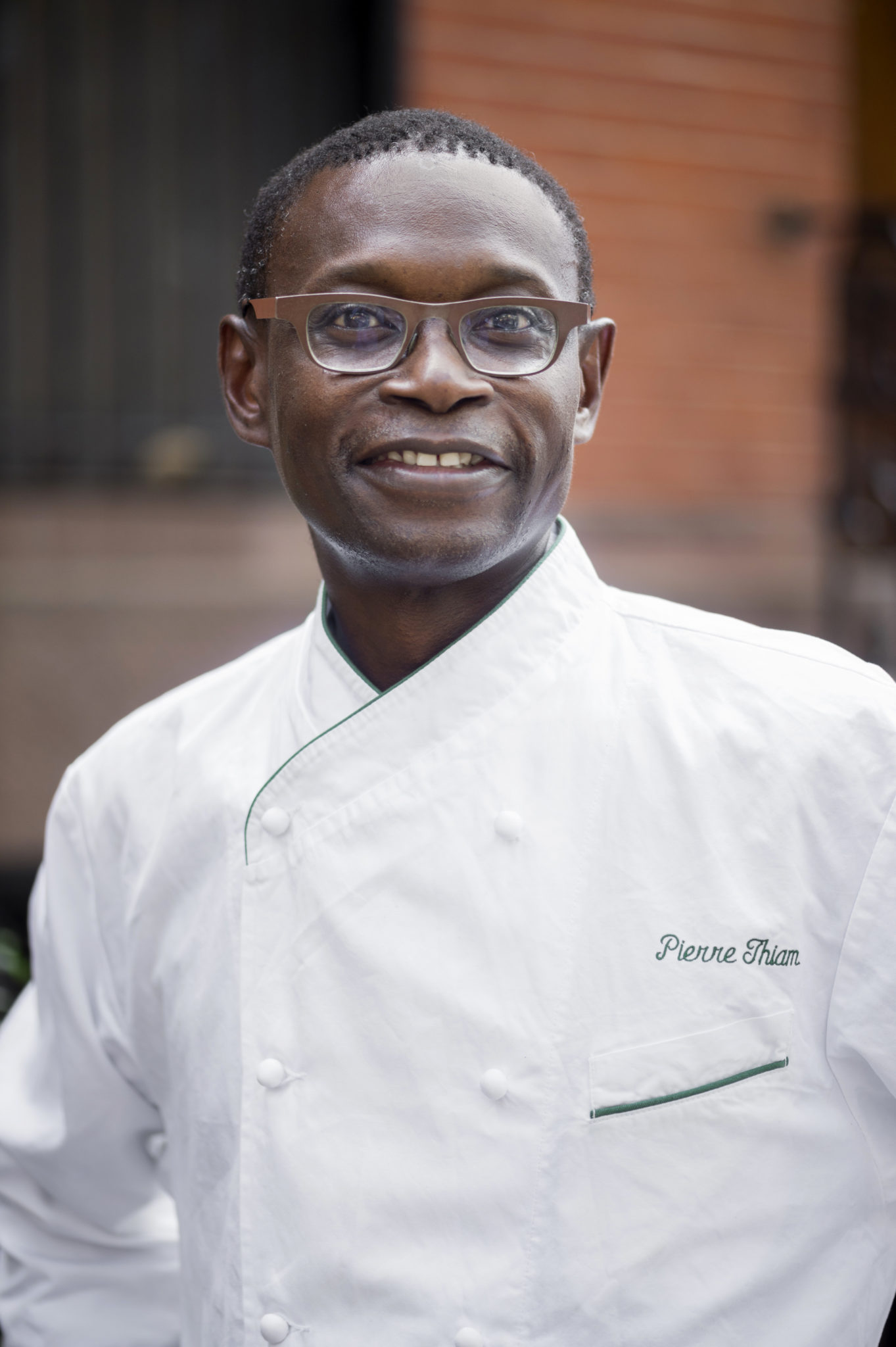Spare a thought for South African journalists, reduced to peering into murk and gun smoke for clues to what’s going on inside South Africa’s National Prosecuting Authority (NPA), the crisis-riddled state agency that decides the fate of criminal suspects in the country. Police files flow into the NPA’s maw, and decisions emerge on the far side—prosecute this case, abandon that one. Once, these decisions were respected. Now they often precipitate furious battles between rival law enforcement factions whose weapons include dirty tricks, illegal wiretaps and sensational leaks to the media. On August 18, however, the smoke cleared momentarily. The scene is a press conference at the NPA’s Pretoria headquarters. Two figures sit on the podium. The dashing man with shaven pate is Shaun Abrahams, a youngish lawyer plucked from relative obscurity to become the new head of the NPA. The woman beside him is Nomgcobo Jiba, a veteran of the NPA’s internal wars. Mr Abrahams announces that he is appointing Ms Jiba to a newly created position in many respects more powerful than his own. As Deputy Director of Public Prosecutions, she will oversee all prosecutorial decisions countrywide.
Given Ms Jiba’s history, this causes certain jaws to gape. “Outrageous,” says Corruption Watch, a lobby group based in South Africa. “A massive step backward,” says a local newspaper. Ms Jiba counters that she is “hurt and offended” by such criticism, and laments the damage it is causing to her three children. She also denies that she is in any way biased in favour of South Africa’s president, Jacob Zuma. With that, the players leave the podium, and the murk closes in again. To understand how it came to this, we have to return to April 6, 2009, the day the NPA announced it was dropping corruption charges against presidential hopeful Jacob Zuma. Helen Zille, then-leader of the Democratic Alliance (DA), South Africa’s largest opposition party, is waiting outside, trembling with rage. She denounces the NPA decision as a travesty and vows that her party will not rest until the agency discloses every shred of evidence upon which it is based. In particular, the DA wants to hear the so-called “spy tapes”, fruit of a cloak-and-dagger wiretapping operation masterminded by the South African Police Service’s Crime Intelligence Division. According to the NPA, two voices can be heard on excerpts of the tapes.
One belongs to Leonard McCarthy, head of the NPA’s directorate of special operations, the other to Bulelani Ngcuka, an influential businessman and close ally of the then president, Thabo Mbeki. These men are heard agonising about the timing of Zuma’s arrest, which they think might cause riots if mishandled. Their conversations also make it clear that Mr McCarthy is not exactly neutral in the rivalry between Messrs Mbeki and Zuma. Audio copies of these conversations are leaked to Mr Zuma’s lawyers, who charge that Mr McCarthy’s indiscretions have hopelessly tainted the NPA’s case. Prosecutors working on the investigation beg to differ, but their seniors overrule them and the Zuma prosecution is abandoned — a decision that opens the way for Mr Zuma to become president. Ms Zille argues that so momentous a decision should have been taken by a judge in open court, not behind closed doors. Hence the DA’s so-called “spy tapes” case, which began as an urgent review application on the day after Mr Zuma’s charges were withdrawn and is still dragging its way through the courts today. From the start, it is repeatedly blocked or delayed by Menzi Simelane, the Zuma appointee who heads the NPA.
The DA retaliates by filing a parallel lawsuit, arguing that Mr Simelane seems incapable of grasping that the constitution requires him to be neutral and asking for his removal from office. The court rules in the DA’s favour: Mr Simelane has to go. Called upon to find a replacement, Mr Zuma’s eye falls upon Ms Jiba. She is too inexperienced to be appointed the NPA’s head, but Zuma decides she will make an acceptable temporary stand-in. She becomes acting National Director of Public Prosecutions in December 2011. Soon after taking up her new position, Ms Jiba is confronted by a court order compelling the NPA to hand over the spy tapes and associated records within 14 days. Ironies abound here. Ms Jiba played a role in the police espionage operation that exposed the Ngcuka/McCarthy conversations in the first place, thereby saving Zuma from criminal prosecution. Then, on coming to power, Mr Zuma took a step some saw as a thank-you: he expunged the criminal record of her husband, a lawyer jailed for stealing his client’s money. Now a court is trying to compel Ms Jiba to hand over evidence that might overturn the NPA’s 2009 decision and land her president back in the dock, facing 783 criminal charges arising from alleged arms deal bribes.
Her response is an affidavit arguing that the spy tapes are subject to attorney-client privilege, and that the DA can have them only if Mr Zuma’s lawyers agree. A damning appeal court judgment concludes that Ms Jiba should have taken a position, and not have left the decision in Mr Zuma’s hands. “Such conduct undermines the esteem in which [her office] ought to be held by citizens of this country,” the court says. Ms Jiba’s next crisis arrives in April 2012, when she places a veteran prosecutor, Glynnis Breytenbach, under suspension, allegedly for challenging NPA decisions in a matter involving Richard Mdluli, another veteran of the clandestine police effort to bug NPA telephones. He had been appointed head of police crime intelligence after Zuma came to power, only to fall victim to what he describes as a conspiracy orchestrated by political enemies. In 2011, facing an array of criminal charges, he wrote a letter asking President Zuma to intervene on his behalf and promising in return “to help the president succeed next year” — generally interpreted as an offer to help Zuma fend off any challenge he might face at a forthcoming ANC electoral conference.
One of the cases against General Richard Mdluli involves an unsolved murder, but let’s focus here on his alleged abuse of Crime Intelligence’s secret fund for informers, spies and undercover agents. In a secret report to the Inspector-General of Intelligence, General Mark Hankel alleges that General Mdluli has appointed several friends and relatives to such positions, even though their utility as spies is not exactly clear. His wife and ex-wife, for instance, are both reportedly drawing salaries equivalent to that of a police colonel while sitting at home doing nothing. In December 2011, one of Ms Jiba’s subordinates announces that he is withdrawing fraud charges against General Mdluli on the grounds that the NPA is barred from intervening in top-secret intelligence matters. The aforementioned Ms Breytenbach, lead prosecutor on the case, is dumbfounded. She writes Ms Jiba a 25-page memo, arguing that the charges against General Mdluli are legally sustainable and urging Ms Jiba to allow her to reinstate them. Ms Jiba ignores her. Ms Breytenbach is placed on suspension and eventually forced out of the NPA. General Mdluli returns to work in March 2012, apparently cleansed and vindicated. A non-profit organisation named Freedom Under Law challenges General Mdluli’s reinstatement in court, and Ms Jiba finds herself before a judge, attempting to explain her actions.
She says underlings made the key decisions, not her. Indeed, she says she wasn’t even aware that General Mdluli had been let off the hook, an assertion that will later strike retired Constitutional Court judge Zac Yacoob as “incredible”. Ms Jiba goes on to claim that she received no objections to the Mdluli decision. This flies in the face of evidence from Ms Breytenbach, who shows that she formally requested Ms Jiba to rescind the Mdluli decision, only to be suspended and slapped with an array of disciplinary and corruption charges, all of which were eventually resolved in her favour. Judge John Murphy finds Ms Jiba’s conduct inexplicable, and orders that the charges against Mr Mdluli be reinstated. In his judgment, Judge Murphy slates Ms Jiba for failing to evaluate the gravity of the evidence against General Mdluli, saying that she had attempted to “shield illegal and irrational decisions from judicial scrutiny”. Meanwhile, General Johan Booysen, a central figure in a sizzling scandal in Durban, is attacking Ms Jiba on another front. General Booysen has made a nuisance of himself by authorising a wiretap operation against Thoshan Panday, a flamboyant businessman allegedly connected to the local Zuma patronage machine.
According to the Mail and Guardian, a Johannesburg weekly, the resulting recordings point incriminating fingers at persons in high places, including (some say) the president. When General Booysen declines to accept a bribe and look the other way, he finds himself facing criminal charges under the Prevention of Organised Crime Act. Outraged by this insult to his integrity, General Booysen challenges his arrest in court. Ms Jiba is called upon to explain why she authorised his detention. In response, she produces a stack of 290 witness statements pertaining to shootings involving officers from the Cato Manor organised crime unit, which falls under General Booysen’s command. Ms Jiba argues that the unit is a death squad, given to performing paid assassinations and extrajudicial executions. But the evidence in this regard is contentious, and against General Booysen in person, almost non-existent. Analysis of those 290 statements shows that General Booysen’s name is mentioned only three times. In two cases, he attended police shootings in their aftermath, and did nothing inappropriate. The rest of her evidence is even weaker. One of the affidavits on which she based her decision is dated two weeks after Booysen’s arrest, and devoid of direct accusations against General Booysen.
A second is neither signed nor dated, and a third comes from a witness who has since died. General Booysen maintains that Ms Jiba actually has no evidence against him at all, and that her claims to the contrary are “mendacious”. When Ms Jiba fails to provide a rebuttal, Judge Trevor Gorven draws the logical inference: Ms Jiba has tacitly admitted to lying under oath. By now, Ms Jiba has stepped down from her temporary leadership position and the NPA has a new head, Mxolisi Nxasana. By several accounts, Mr Nxasana is an honest man who wants to do the right thing. Perturbed by mounting judicial criticism of Ms Jiba, he asks outside counsel to review her performance. The consultant recommends that Ms Jiba be prosecuted for her actions in the Booysen case. When this fails to convince the presidency, Mr Nxasana refers the matter to a committee headed by Judge Yacoob. He agrees: there is “a prima facie” case to answer. With that, Mr Nxasana steels himself and files fraud and perjury charges against Ms Jiba. Judging by the reaction, this decision is not welcome. A hidden hand reaches into Mr Nxasana’s past and comes forth with several skeletons. According to a presidential proclamation, these include youthful convictions for assault and unspecified “criminal charges for acts of violence”. His sense of propriety suddenly inflamed, Mr Zuma announces that he is convening a hearing to assess Mr Nxasana’s fitness for office.
According to NPA insiders, Mr Nxasana has no stomach for war and the strain is affecting his family. So he decides to step down in return for R17m ($2.2m) and a statement from Mr Zuma withdrawing any aspersions that may have been cast on his character. Once Mr Nxasana is gone, rivals flood into the vacuum left by his departure and set about reversing decisions made during his brief tenure as NPA chief. Within days, the four-year-old fraud case against General Mdluli is “temporarily” abandoned to allow the NPA time to finish its investigation. Then the youthful and relatively inexperienced Mr Abrahams is installed as the new NPA head. One of his first acts in office is to announce the withdrawal of criminal charges against Ms Jiba on the grounds that she “acted in good faith” in authorising General Booysen’s arrest. Soon after, General Booysen is suspended yet again. A senior officer who backed General Booysen’s pursuit of Mr Panday — Robert McBride, head of the Independent Police Investigations Directorate — is also placed under suspension. In fact, Mr Nxasana himself might be a victim of the Panday case: last year, newspapers reported that he was planning to send ace prosecutor Gerrie Nel to Durban to re-examine all the cases brought against Mr Panday. Now that investigation appears to be dead in the water.
In earlier times, a person in Mr Panday’s position might have worried about losing his gleaming red Ferrari to Willie Hofmeyr’s Asset Forfeiture Unit, one of the few NPA divisions regarded as clean and effective. But Mr Hofmeyr was sidelined after Mr Abrahams came to power, and now occupies an inconsequential administrative position. This brings us back to the press conference described in the opening paragraphs — the one where Mr Abrahams appointed Ms Jiba to a position more powerful in many respects than his own. According to Ms Breytenbach, now the DA’s shadow justice minister, this reflects the reality: Ms Jiba is the real boss of the NPA, she says, and Mr Abrahams her patsy. “Jiba is odious,” Ms Breytenbach says. “Her agenda is to protect the president and his networks, even if it means destroying the NPA.” Well yes. The DA has an agenda too—get the president. But something more important than Mr Zuma’s fate is at stake here. South Africa’s once respected prosecutorial service is itself increasingly under suspicion. As David Lewis of Corruption Watch puts it, “It is time to be really, really worried.”
Rian Malan is a Johannesburg-based musician and journalist best known for his 1990 memoir, “My Traitor’s Heart”, recently republished as a Vintage Modern Classic. A collection of his subsequent work, “Resident Alien”, was published in 2009. Malan has also made several award-winning documentaries, most recently The Splintered Rainbow, for Al Jazeera.

